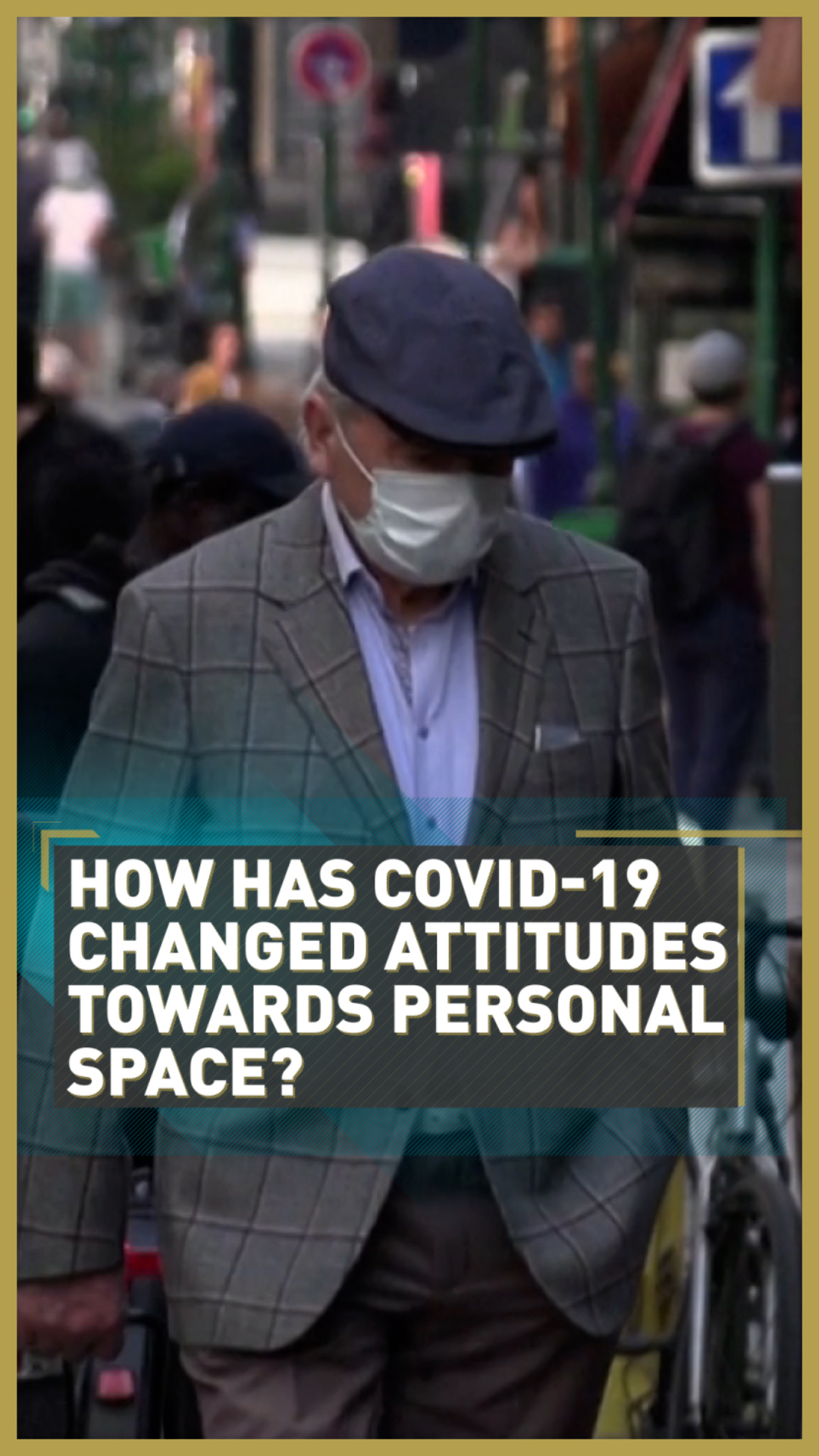02:50

When mobile phone footage went viral on Twitter in the UK recently it raised some unexpected questions about how the COVID-19 outbreak is changing our lives.
"Don't you know what two meters is? Are you that thick?" raged one shopper to another while queuing at an Essex superstore. Days later, a similar video emerged showing a woman shouting at a store manager in Birmingham in an altercation that turned violent. "Why have you got a worker like that in your shop?" she asked. In both cases, the individuals were angry about perceived intrusion into their personal space.
The advice of the UK government, along with that of administrations globally, has been clear on the need for a two-metre rule. UK health minister Matt Hancock has described social distancing as "mission critical", warning flouters, "You are risking your own life and the lives of others."
Tina Iachini, a professor at Italy's University of Campania, has researched attitudes towards personal space.
"Social distance is like an invisible buffer around us that we always carry," she told CGTN. "It is our shield of safety and that is why we are so sensitive to the safety value of this space".
She claims fear of the COVID-19 virus, combined with long, often stressful periods in lockdown, has led to a new caution.
"I can tell you that the social distances that we consider comfortable in relation with other peoples have almost doubled as compared to before the pandemic," said Dr Iachini, who has just updated her research in Lombardy, the region most affected by the coronavirus. "People feel safer if they can ensure a larger distance from others".

The 2 metre rule is being observed outside this supermarket with the help of tape marking the distance on the floor. /AP
The 2 metre rule is being observed outside this supermarket with the help of tape marking the distance on the floor. /AP
Shop workers trying to implement the two-meter rule find they are at the frontline in dealing with its impact. Doug Russell of the UK retail workers union USDAW told CGTN about the behaviour of some individuals who feel their space is under threat.
"Just because they are nervous and frightened to be out themselves, they are on a sort of trigger edge, and it's enough to set them off. It takes a lot of time to calm them down. Ironically one of the problems is they then forget all about the two-meter rule, and start pushing and shoving".
With pictures of leaders like Dutch Prime Minister Mark Rutte and Tanzania President John Magufuli elbow bumping and foot tapping colleagues, could COVID-19's effect on our personal space be with us after the outbreak is over?
"The first data suggests. this new attitude should be lasting for some time after the end of the lockdown," warns Iachini. "It's important not to say 'Oh well, the coronavirus is over, we are safe now.' No! Because otherwise people could adopt social distancing behaviour that is not appropriate."